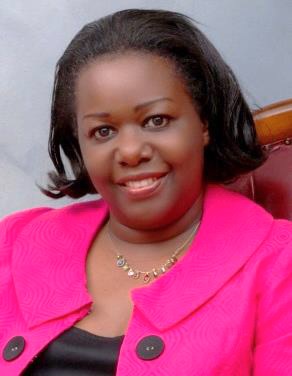Making the oil, gas and mining sector more inclusive
By Christine Musisi - Regional Director, UN Women Eastern and Southern AfricaDate:

Africa holds 30% of the world’s mineral wealth. It also holds 30% of the world’s poor the majority of whom are women. 89% of women in sub-Saharan Africa, according to UN Women’s Progress of the World’s Women Report 2015-2016, are in the informal sector. So whose growth is the 5% anyway?
UN Women’s vision in Africa is to bring women to the heart of Africa’s development and transformation. For this to happen, women need to become central actors and beneficiaries of the sectors that drive Africa’s economy. The Extractive Industries (EI) accounts for 60% of Foreign Exchange earnings in the Southern African Development Community (SADC) region alone, and for GDP of up to 19% in some countries.
Globally, only 10% of professionals in the EI sector and 1% board members or CEOs are women. On the other hand, women dominate the artisanal and small scale mining sectors (up to 30% globally, and in some African countries, up to 70%) which is ridden with insecurity, poor earnings, poor working conditions and health hazards.
According to the Organisation for Economic Co-operation and Development
(OECD), “if countries saw full convergence of men and women in the labor force, these countries would benefit from an overall increase of 12% in GDP over the next 15 years. Some emerging countries could see increases of 20% in GDP or more in the same time period.
It is interesting to note that according to the Mining for Talent 2013 Report, by Women in Mining (UK) organization, company profit margins are higher for mining companies when women are on their board of directors. It goes to show that investing in gender equality in this sector, makes business and economic sense for the sector. Unfortunately, women only hold 10 % of professional and 1 % of leadership positions in the mining sector globally.
During the three-day Regional Sharefair on Gender Equality in the Extractive Industries that was convened by UN Women and the African Union (AUC) with the support of the Australian High Commission in Nairobi and other partners, including the United Nations Economic Commission for Africa (UNECA) and United Nations Development Programme (UNDP), governments, financing institutions, civil society organisations, private companies and women in the oil, gas and mining sector, explored ways, means and practical steps that need to be taken which include:
- Improving the legislative and policy environment for women to participate, contribute, and benefit from the Extractive Industries sector;
- Empowering women by building their professional, business and personal competences and knowledge in Extractive Industries; and
- Developing instruments that facilitate women’s investment, value addition and marketing in this sector.
While women’s economic rights are human rights, it is also makes economic sense to bring women to the centre of sectors that drive the African economy, as this will accelerate equitable growth and development.
The multiple effect of women’s empowerment will also enable us to achieve the sustainable development Goal (SDG) 5 of achieving gender equality and empowering women as well as contribute to the other 16 SDGs.
Indeed, achieving gender equality is an imperative for the African continent if it is to realise its vision of an integrated, peaceful and prosperous continent, and if it is to become a dynamic force in the global arena.